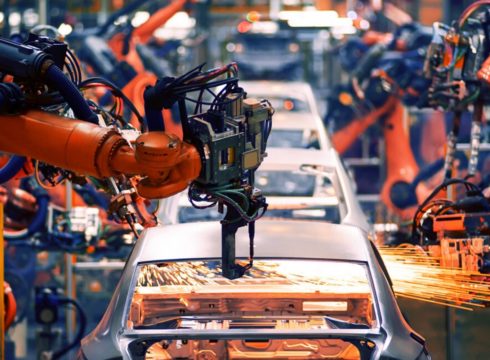SUMMARY
CAFE norms are set up to regulate fuel efficiency in vehicles
Automakers to produces 2-3% EVs every year
With this move, govt plans to limit ICE vehicle production
Inc42 Daily Brief
Stay Ahead With Daily News & Analysis on India’s Tech & Startup Economy
In an attempt to boost electric vehicles (EV) production, the Indian government has devised another way to push for gradual electrification of the vehicle. The government has now decided to update the corporate average fuel economy (CAFE) norm, a set of regulations automakers have to follow for producing vehicles in India.
Until now, CAFE required automobile makers to produce cars that are 10% or more fuel-efficient. The timeline to do so since the introduction of CAFE from 2017 to 2021. From 2022, the automobile maker will have to scale up to produce vehicles that are at least 30% fuel-efficient. The norms also had certain other guidelines to make Indian vehicles at par with the rest of the world.
According to a report in ET, the Indian government has asked automobile makers to make at least 2% to 3% of their cars electric every year. In addition, automakers, who have reached their average fuel consumption target, will have to indirectly invest in EVs.
An official told ET that in the new norms, the government has significantly reduced the previous target of 40% of electric fleet production by 2026. This was done because the government acknowledges that Indian requires buses, not necessarily electric buses, the source added.
With stricter norms, the government hopes that the automobile maker will reduce the production of internal combustion engines (ICE) and eventually push for EVs. ET’s source also added that the EVs will only be adopted if it makes commercial sense for companies and for that the government will have to push the companies in that direction.
The idea to change the CAFE norms arises out of international examples like California, which used the norm to manage their own automobile situation. Like India, CAFE norms in California are used to regulate fuel efficiency, which the car manufacturers have to follow. Thirteen states in the US — Connecticut, Delaware, Maine, Maryland, Massachusetts, New Jersey, New Mexico, New York, Oregon, Pennsylvania, Rhode Island, Vermont, Washington state — also follow CAFE.
According to a report by the World Economic Forum (WEF), India has the potential to become the largest EV market in the world due to the policies and programmes of the state and the central government.
As EV production is gaining some momentum in the Indian context, private players like Maruti Suzuki, Toyota, Hyundai and MG Motors, among others have come forth to jump into the race. At the same time, certain car manufacturers like BMW and Mercedes Benz have decided to wait for the Indian EV ecosystem to develop fully.
Note: We at Inc42 take our ethics very seriously. More information about it can be found here.


